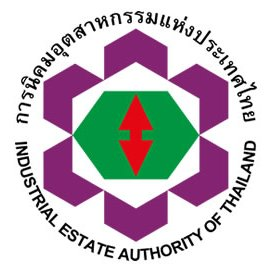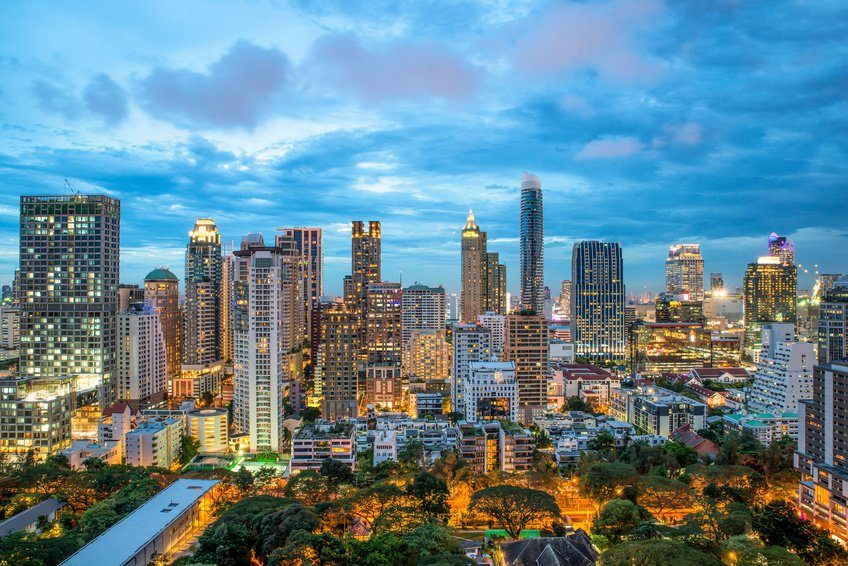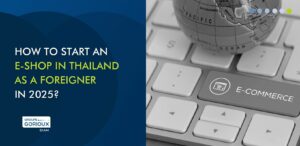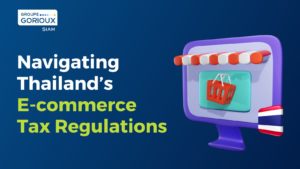The Thai government has approved measures to encourage investment in special economic zones (SEZs). The purposes for developing the SEZs include the acceleration of border trade, increasing border security, promoting the greater distribution of income, and enhancing Thailand’s competitiveness in the ASEAN Economic Community.
What are free economic zones in Thailand?
Source: bangkokfreetradezone.com/
Free zones, also known as “special economic zones”, are regions designated by the Special Economic Zone Development Board of the Thai Government. These zones are designed to allow foreigners to set up their companies in Thailand, while benefiting from simplified procedures, tax advantages, property rights and full foreign ownership. SEZ have been laid out mainly for free flow of people, trade and investment starting from 2015.
Development of the Special Economic Zones of Thailand
The development of the SEZs is divided into two phases, with the first phase covering 5 provinces of Tak, Mukdahan, Sakaeo, Trat and Song Khla, comprising 10 districts and 36 sub-districts.
Other provinces include Chiang Rai, Nong Khai, Nakhon Phanom, Kanchanaburi, and Narathiwat, comprising 12 districts and 55 sub-districts.
Source: aseanbriefing.com
This border development will allow Thailand to take advantage of these movements in terms of economic activity, in the making of collaboration or partnerships between factories in Thailand and those in neighboring countries.
The special zones will also help strengthen the country’s competitiveness in trade and investment in border areas. They will continually attract investment in Thailand and abroad that will generate economic activities in border areas, including trade, investment, logistics, tourism and other service activities. In other words, this will help strengthen Thailand’s competitiveness in a sustainable way and create security, well-being and a better quality of life for people living in border areas.
What are the advantages of the free economic zones?
Strategic and financial advantages can be mentioned when registering a free zone company in Thailand. These are the following ones:
Tax advantages
First of all, foreigners need to propose an application to cover the BOI promotion status. Indeed the investment plan will be analyzed by the BOI, in order for them to benefit from tax advantages including:
- “up to eight years of corporate tax holidays
- reduced or waived custom duties on imports of raw material and equipment.”
Then, if the BOI promotion status is secured, foreigners can also secure additional tax benefits:
- “up to three additional years of corporate tax exemption
- and/or reduced corporate tax of 10% during the following eight years.”
However if the BOI promotion status is not obtained, “the special economic zone authority may grant some or all the tax benefits that such status would have granted, but the activities of the company must be linked to the economic interest by the free zone authority” and must correspond to the 13 targeted businesses.
Simplified procedures
Foreigners can also benefit from simpler registration procedures, when registering a free zone in Thailand. Their companies can be “wholly foreign-owned without the requirement to secure a foreign business licence”, which enables them to reduce costs and delays.
Moreover most free zones have a one-stop-shop to register the company easily, and obtain all necessary permits and licenses.
Finally businesses operating in a free zone can bring foreign experts in Thailand, in particular through a fast-track and simplified procedure.
In short, registering in a Thailand special economic zone allows a business to benefit from “all the cost savings inherent to Thailand such as low labor costs, low utility costs, and low overhead, without any of the import/export issues.”
What are the requirements to form a company in a Thailand special economic zone?
The Thai government has established special economic zones (SEZs) in ten provinces bordering neighboring countries: Tak, Nong Khai, Mukdahan, Sa Kaeo, Trad, Narathiwat, Chiang Rai, Nakhon Phanom, Songkhla and Kanchanaburi. Foreigners who wish to register a free zone company in Thailand are required to:
- “pay up a capital of at least $62,000
- secure a lease agreement for manufacturing or warehousing space within the free zone
- their activities must be linked to export and/or generate technology transfers.”
To set up a free zone company, foreigners must fill out an application form and provide the following documents:
- Registration certificate
- List of shareholders
- Site plan and blueprint
- Business type, purpose and related objective
- A financial and marketing plan, source of funding
- Future plan (if any)
What industries are targeted?
The government provides a full range of incentives for businesses operating in 13 industries. These industries are:
- Agriculture / Fishery
- Ceramics
- Pharmaceutics
- Electrical appliances / Electronics
- Plastic
- Automobile / Machinery / Parts
- Logistics
- Industrial estate / Industrial zone
- Medical devices
- Tourism
- Furniture
- Jewelry / Ornaments
- Textile / Clothing / Leather
What incentives are available in Thailand?
BOI incentives (Board Of Investment)
Those running businesses in the 13 target industries can avail the following incentives from the BOI of Thailand:
- Corporate income tax exemptions for up to eight years
- An additional corporate income tax reductions of 50% for five years
- Reduced or waived import duty on machinery
- Exemptions of import duties on raw or essential materials used in manufacturing export products
- Enhanced deductions of certain operating and project infrastructure costs
Businesses operating within the SEZs that are not within the 13 targeted SEZ industries can also benefit from the general BOI promotion scheme: the corporate income tax exemptions may vary from three to eight years.
Otherwise for businesses that are not qualified for BOI promotion and wish to operate in a SEZ, “they may apply to the Revenue Department for a reduction in corporate income tax from 20% to 10% for 10 years, subject to conditions.”
For more information, please visit BOI website at www.boi.go.th
IEAT incentives (Industrial Estate Authority of Thailand)
With the IEAT incentives, foreign workers and investors who have businesses in a SEZ, have “the right to own land in the industrial zone, visas and work permits especially for technicians and experts.” Transferring currency abroad is also easier for them. There are also “exemptions from import duties, export duties, VAT and excise taxes.” Import restrictions for goods or materials for export are also relaxed.
Why invest in Thailand?
Thanks to its abundant resources and its geographical location, Thailand is nestled in the heart of ASEAN. The country is becoming the gateway to Asia and the region of the world’s greatest economic growth.
Source: https://unsplash.com/photos/TreyJD0mps4
Thailand is well-connected
The country has signed a free trade agreement with 17 other countries including India, Japan, New Zealand, Australia, Chile and Peru, as well as the 10 ASEAN countries. It is a major global supply chain supplier and trading partner of North America, Europe, China and Japan. The country has highly developed infrastructure and these major investments will reduce the cost of transport and logistics, and will contribute to Thailand’s reputation.
Thailand is competitive
It still remains an attractive destination for investors with its promising economy and has demonstrated remarkable economic progress. Thanks to the growth in exports and the flourishing tourism industry, Thailand achieved a record current account surplus, equivalent to USD 48.2 billion in 2017. In addition, the country offers a better quality of life and a lower cost to foreign investors.
Thailand is attractive
According to the 2018 report on the “Doing Business” business environment recorded by the World Bank in 2018, the country ranked 26th (out of 190 countries in total). It simplified the rules for starting a business: the rule that requires a company to obtain a business stamp before it is created has been removed. As a result, the work department no longer needs to validate the internal regulations of the company. The creation of the company can be done in 4.5 days instead of 27.5 days.
Gorioux can assist you from A to Z for the creation of your business in Thailand. Do not hesitate to contact us for a free consultation: info-siam@gorioux.com




